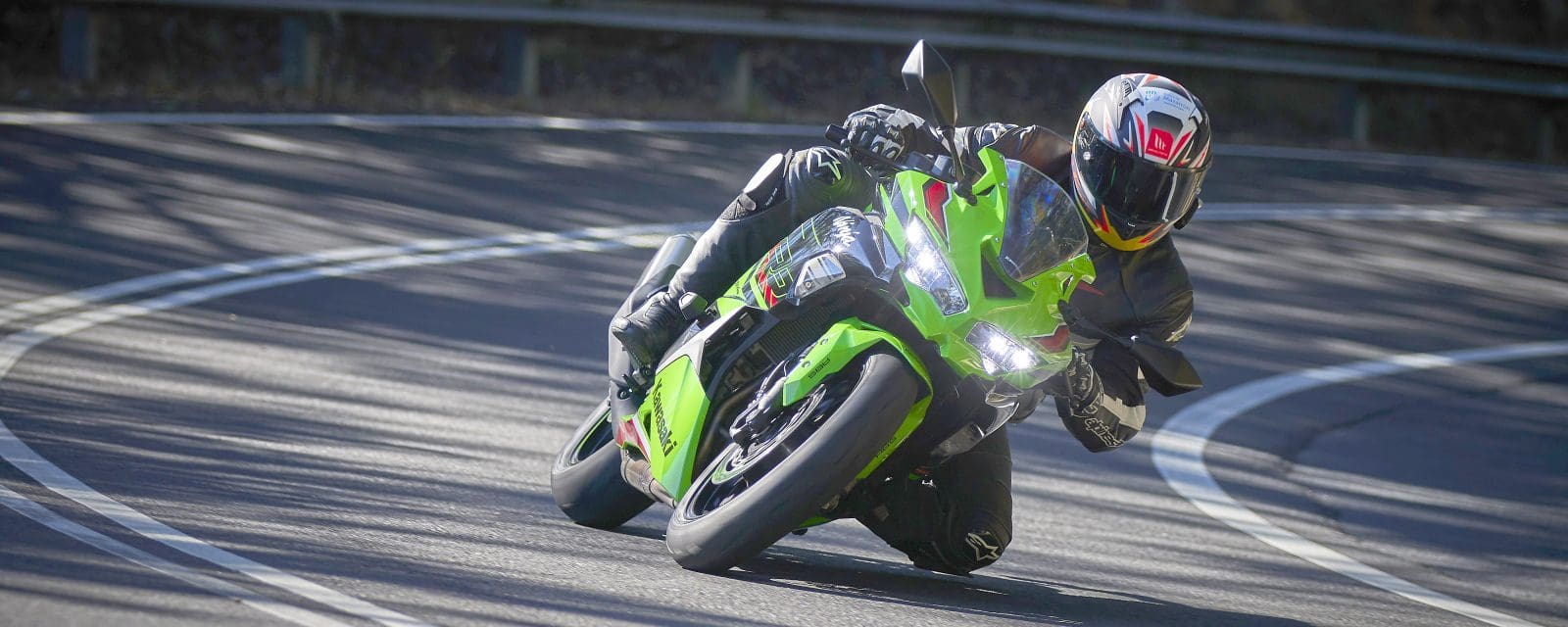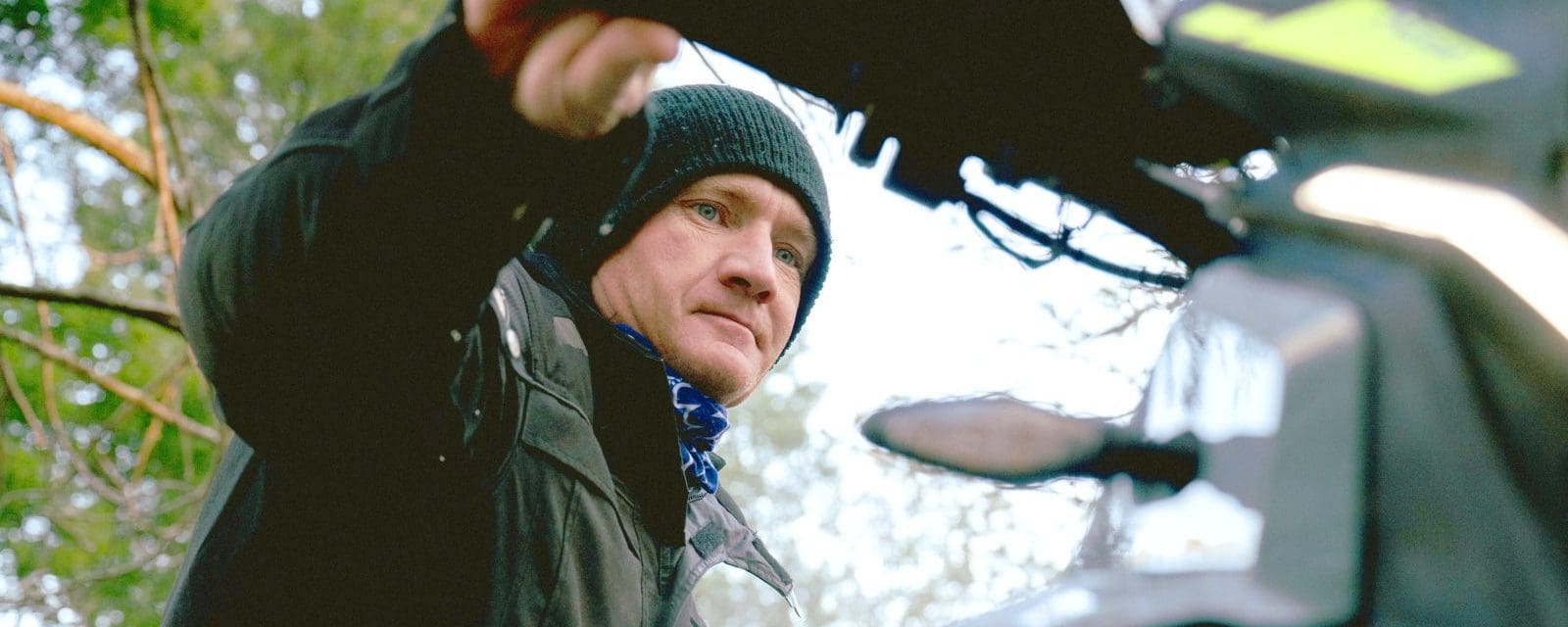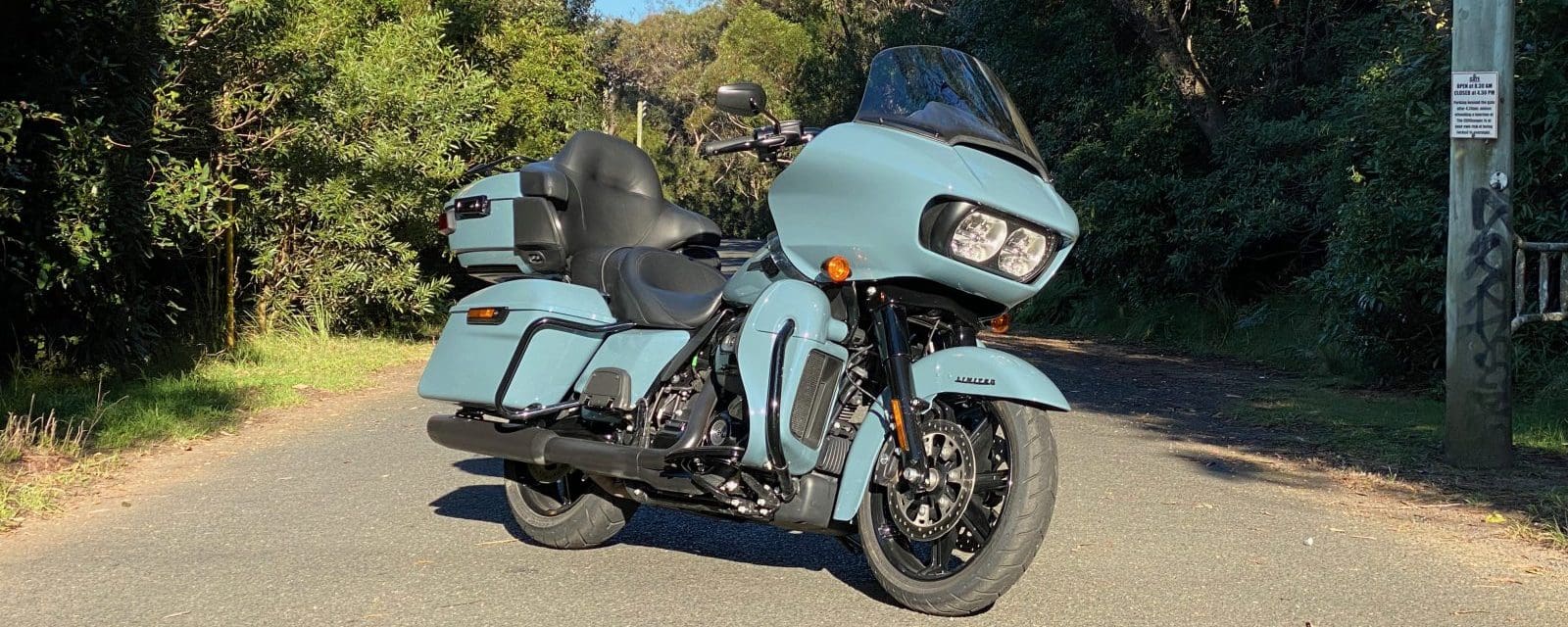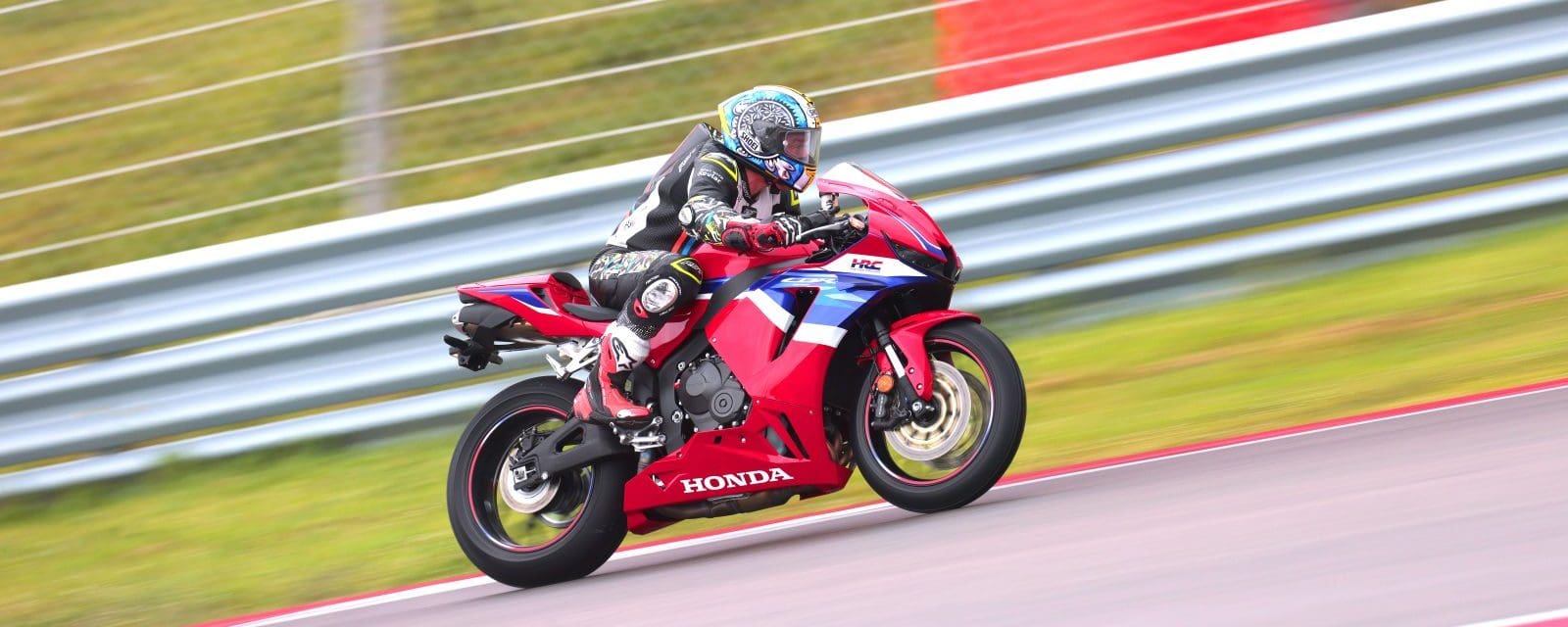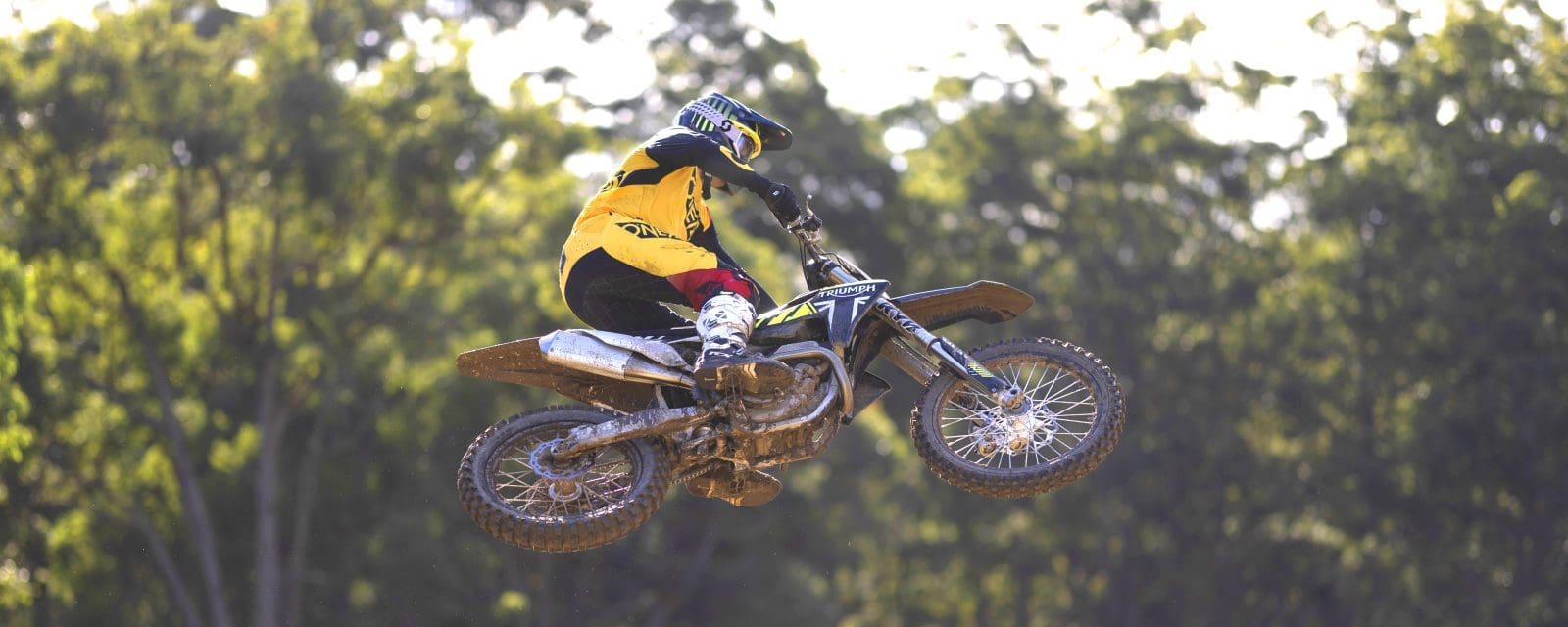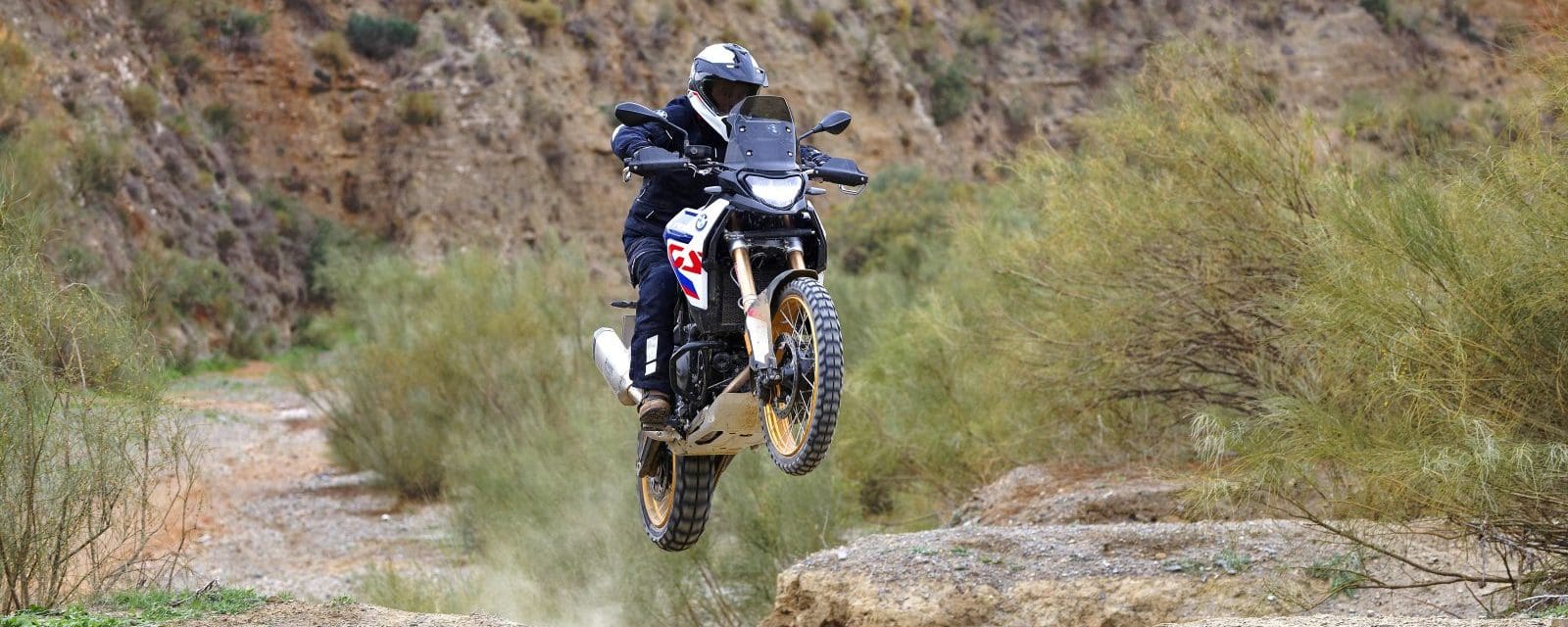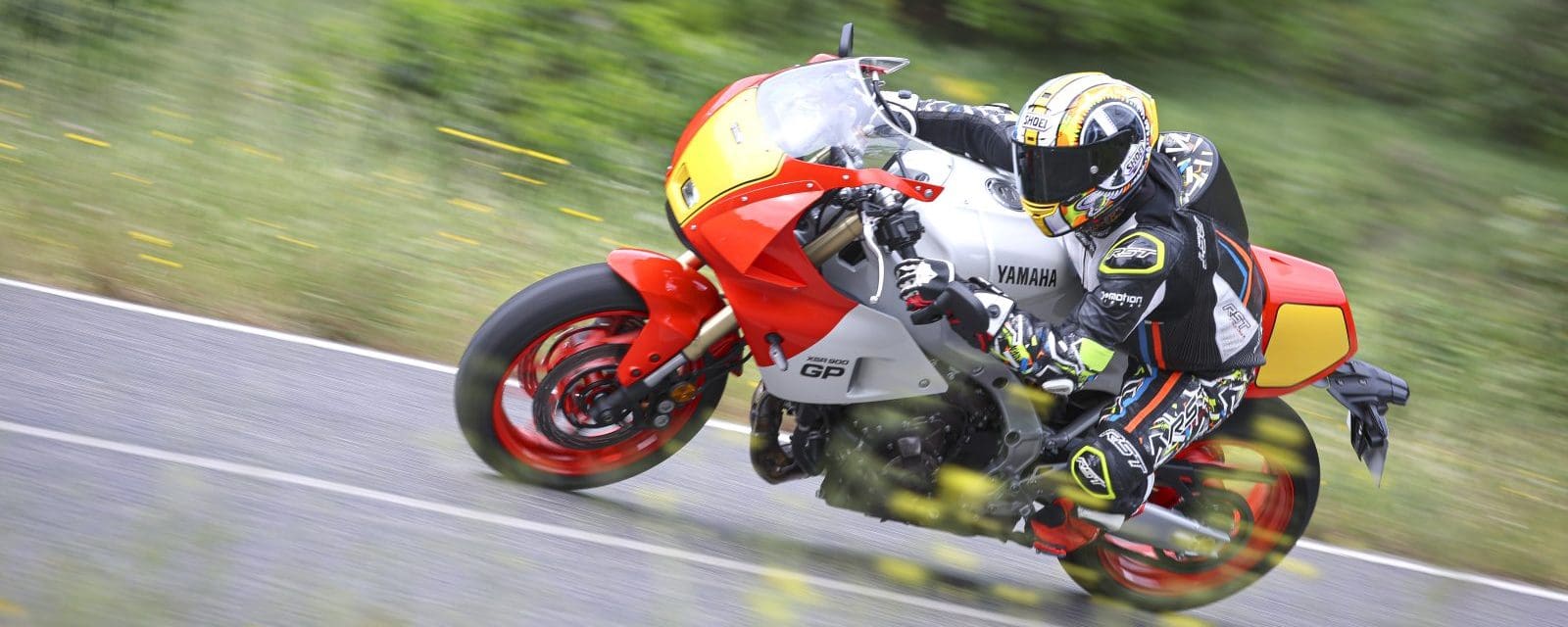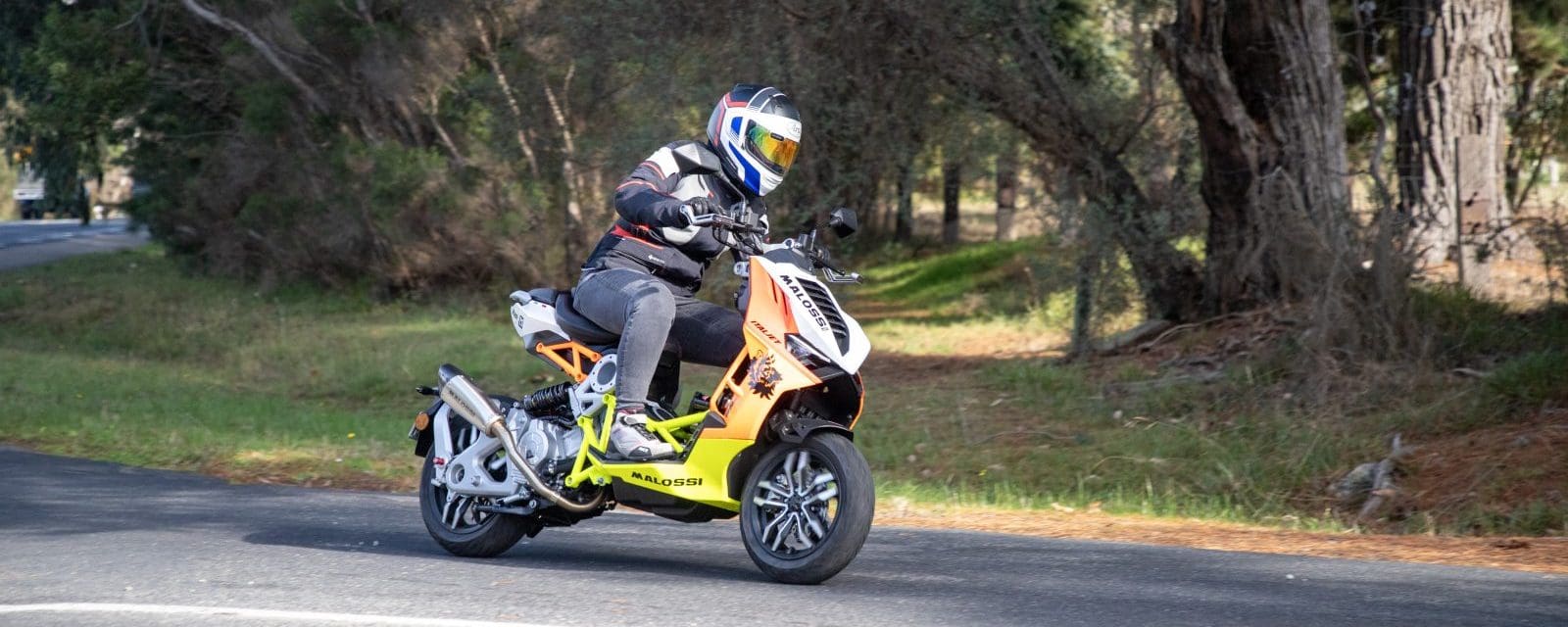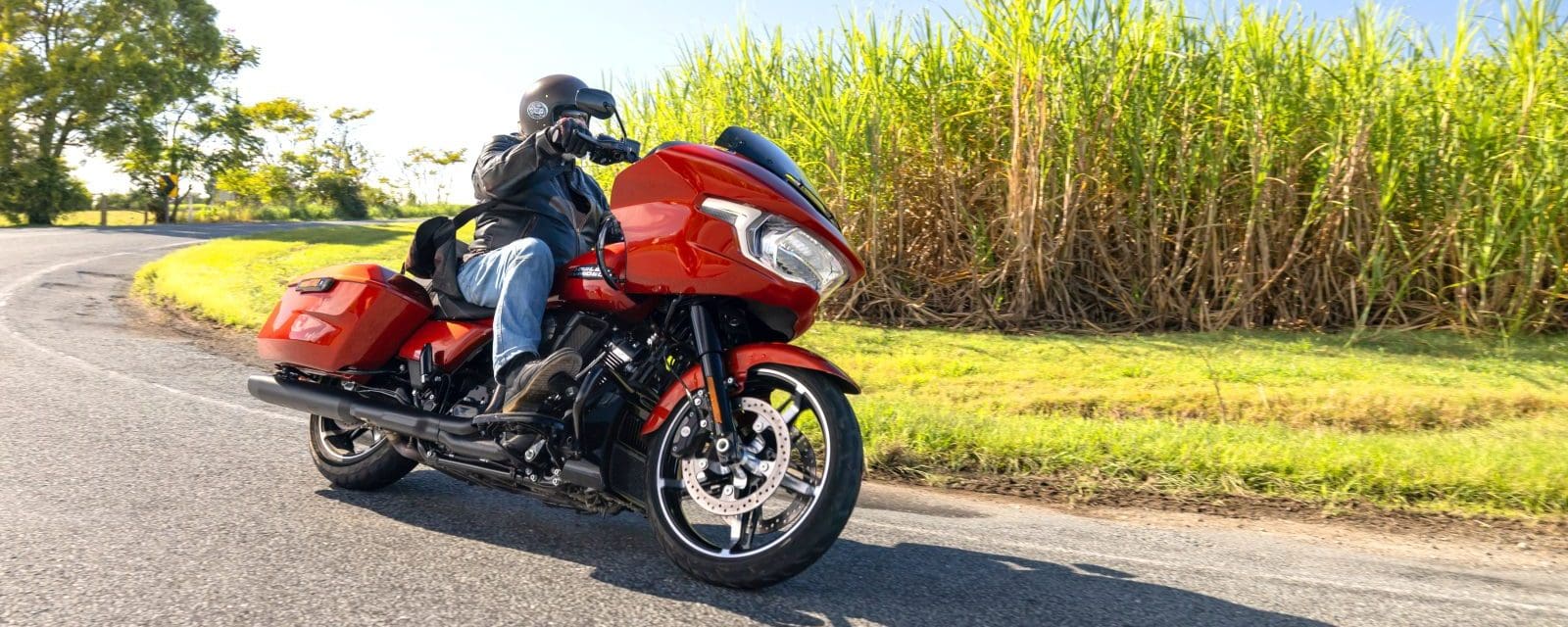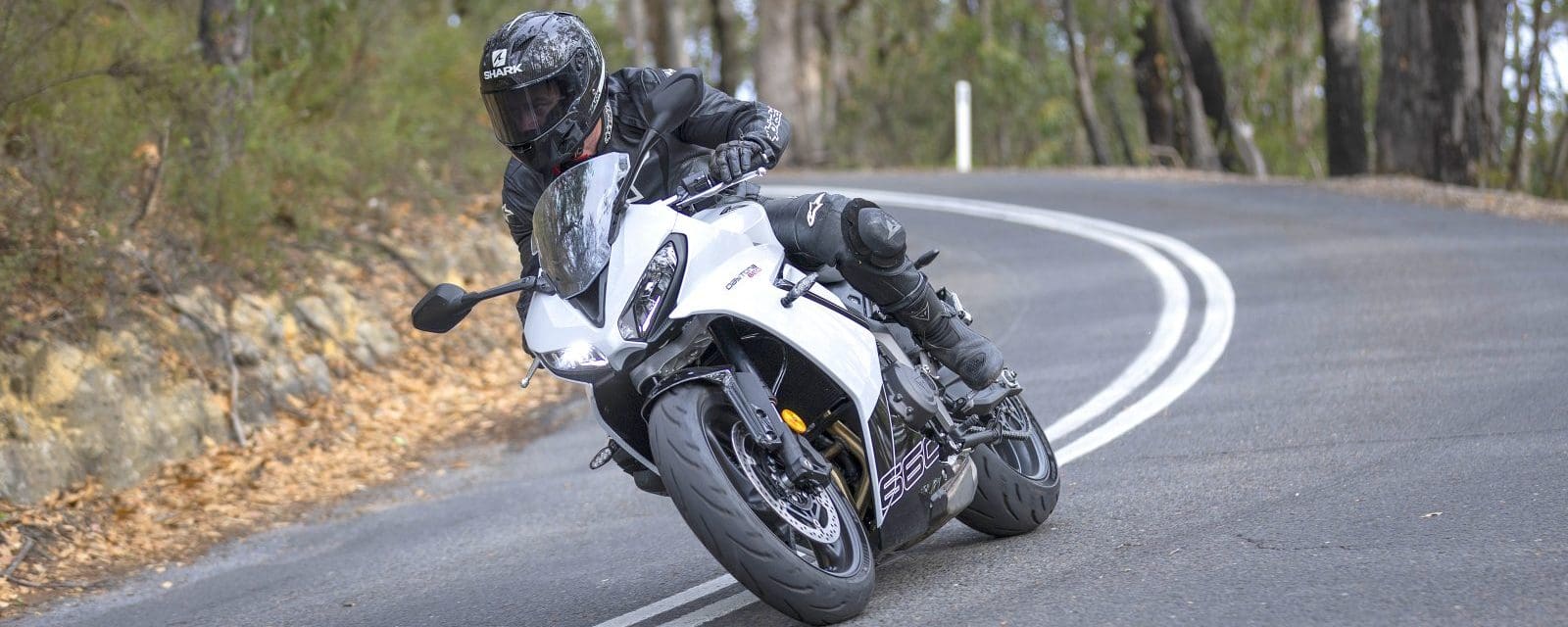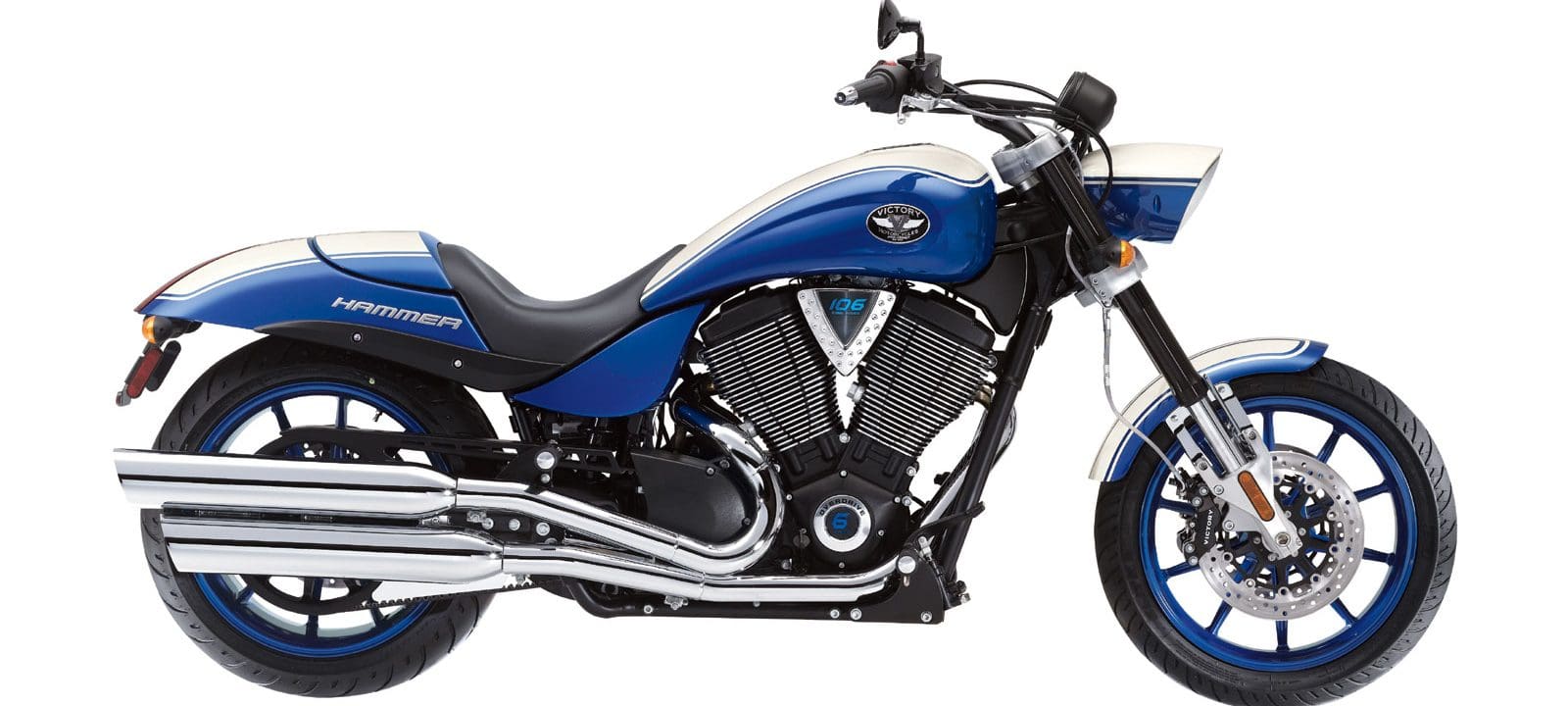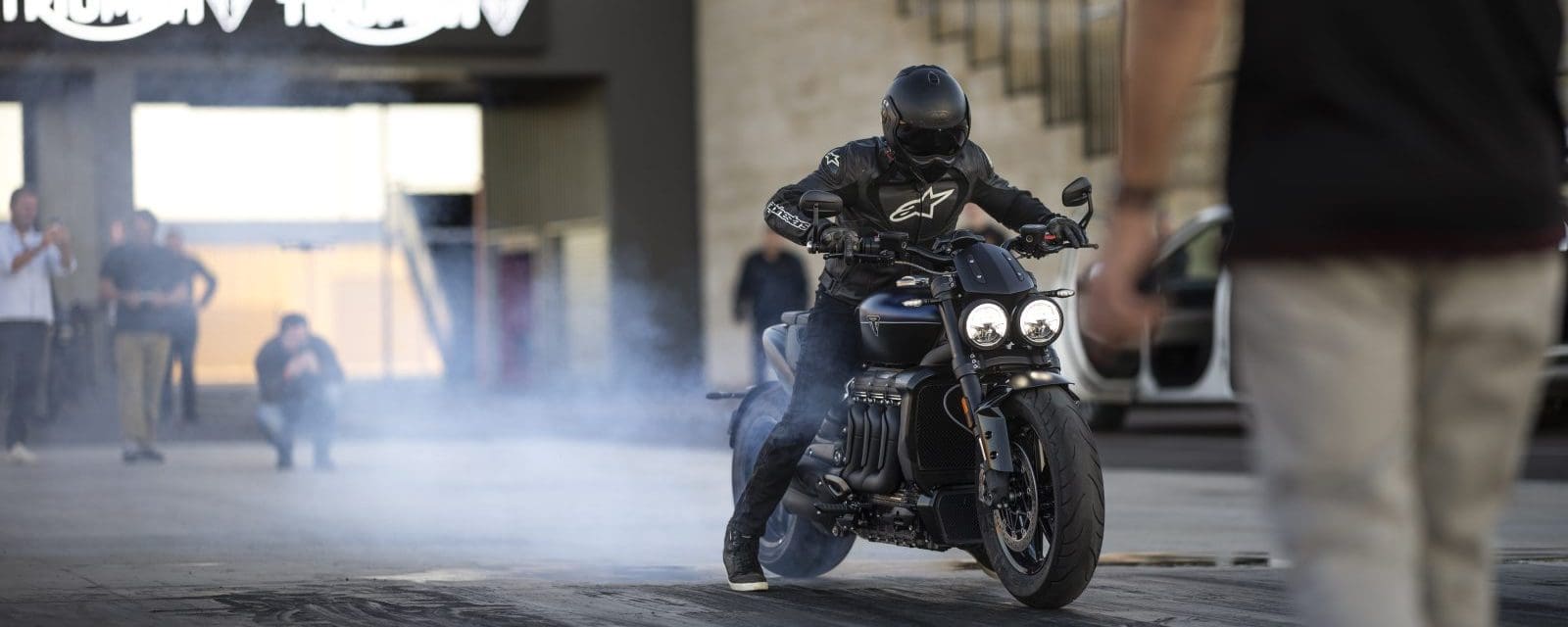Cher said it best: If I could Turn Back Time. My two-stroke whipper snipper was strumming away and I was dreaming about things I’d rather be doing. I got to thinking about the good old days; days when I was young and life was simple.
My first bike was a two-stroke and all throughout my youth I was surrounded by the ring-a-ding-ding associated with such machines. Some of the (unlucky) kids had Honda XR75 four-strokes, but in those days the four-bangers were pretty much a bit of a laugh to the two-stroke YZ clan.
I thought about days you could turn up to Adelaide International Raceway (AIR), pay your 25 bucks and head out for a track day, all in. There were cars, karts and all manner of bikes running together on the circuit, all at the same time, and all before health and safety was front and centre in our lives.
I first rode my Yamaha RZR 250 there and it was on that bike in the circuit’s bowl section that I scraped my knee for the first time.
As time passed my passion for bikes grew and by 1986 I wanted to make the next step in my road racing career. I loved my racing and wanted to take it more seriously. I decided to step it up, the 250 was nice but I wanted to move up to what I perceived to be the big time.
This period was tricky though, as the framework of racing was changing – it was an era when the four-stroke mob started fighting back. The World Superbike Championship was just around the corner, F1 motorcycle racing was strong, Honda
had already been dabbling with a four-stroke 500cc GP bike and then bikes like Suzuki’s futuristic GSX-R750 hit the market.
Like all of us, I’d watch the Grand Prix on SBS (for free) and in my eyes the best bike in the world was a 500cc two-stroke.
Just do it
Being an apprentice cabinet maker, I didn’t have the funds to go out and buy a bike, I had to get a loan which meant I had just one chance at getting it right. I remember walking in to Mick Hone Motorcycles in Adelaide, a little shop on North East Road and eyed up the two bikes I hoped would set me on the path to international stardom.
There was the brand-new Suzuki RG500 Gamma roadbike on the left and on the right, the new GSX-R750. It just didn’t compute to me that the GSX-R could amount to anything – sure, it looked like a racer, but so did Honda’s XR75.
The salesman had a demo RG500 and let me take it for a spin down the North East Road and my god, it was fast. Back in those days in Adelaide, not too many people worried about speeding and I certainly wasn’t thinking about it – I was thinking more about looking like Barry Sheene.
The RG wheelied at a whim even in the peak hour traffic and until this day there are only a few bikes that loft the wheel as easily as the RG did. It was the perfect bike to take my racing to the next level, with its alloy frame and futuristic 16-inch front wheel.
The square-four engine was modelled straight from Sheene’s title-winning bike and it was light. A dry weight of just 156kg with nearly 75kW at the crank made it the lightest mid-sized bike on the market and it promised to make Yamaha RZ500 owners run for cover.
I ran it in heading west to Port Pire and back and the further I went, the higher the speed increased. I got my first motorcycle speeding ticket on that RG, clocked doing 135km/h in a 110 zone: lucky, though, because not long before I was pinged I was ‘running it in’ at a much higher speed.
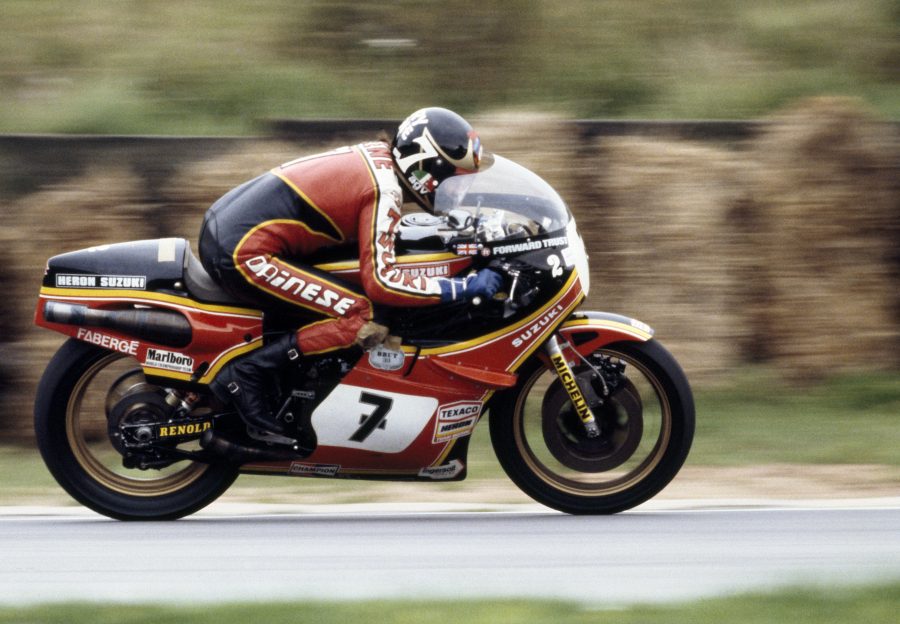
Highs and lows
There was one particular meeting at Mallala where I started my first ever wet race on the beast. In those days there were no wet tyres, everyone used the dry tyres which were much more all-rounders. Being a C-grader, I started from mid-pack and after about three corners I was in the lead, I couldn’t believe how careful everyone was being! My heart was pumping and I felt at one with the bike. I discovered I was pretty good in the wet – until I came in to Mallala’s Northern Hairpin, grabbed the front brake too hard – and ate dirt.
I had the whole of the back straight as a lead and just one lap to go, so I should have slowed down, but as an 18-year-old who knew it all – I had to learn the hard way. Luckily the bike was only slightly scuffed since I threw myself under it to protect my pride and joy – and I still owed lots of money on it!
Nevertheless, that bike was the best and most thrilling bike I had owned and ridden and, in my mind, it was better than the GSX-R750s all the other racers had. Gee, I had to ride hard to beat them – but eventually I did.
The day my Gamma died
My final ride on the RG came at an AIR practice day. I remember it vividly. I paid my $25 and was scooting around on bald tyres (I used them till the canvas showed), accelerating past the race cars on the straights and getting rounded up again in the braking area and corners. At some point in the day I flicked into second gear, which had always been a bit hit-and-miss, when I lost all power.
It felt like the chain had come off but when I looked down at my boot there was bits of gear and metal all over the place. The damage looked – and was – terminal. I was gutted, my 500 was destroyed, I owed money on it and worst of all, there was still half a day of track time to go. But little did I know that moment would lead to my first free racebike.
A guy called Carl Bevlander came up to me with one of those new GSX-Rs and said, “go for a spin”. Oh man, it was so easy to ride compared to my bike. I smashed my PB time by miles and Carl was impressed enough to let me race his bike for the rest of the season.
I bought a crashed RG500 from Bike Centre in Adelaide for $2000, rebuilt my RG and got myself out of debt. These days, I wish I never sold that bike and when the chance came up to ride a similar machine, I couldn’t turn it down.
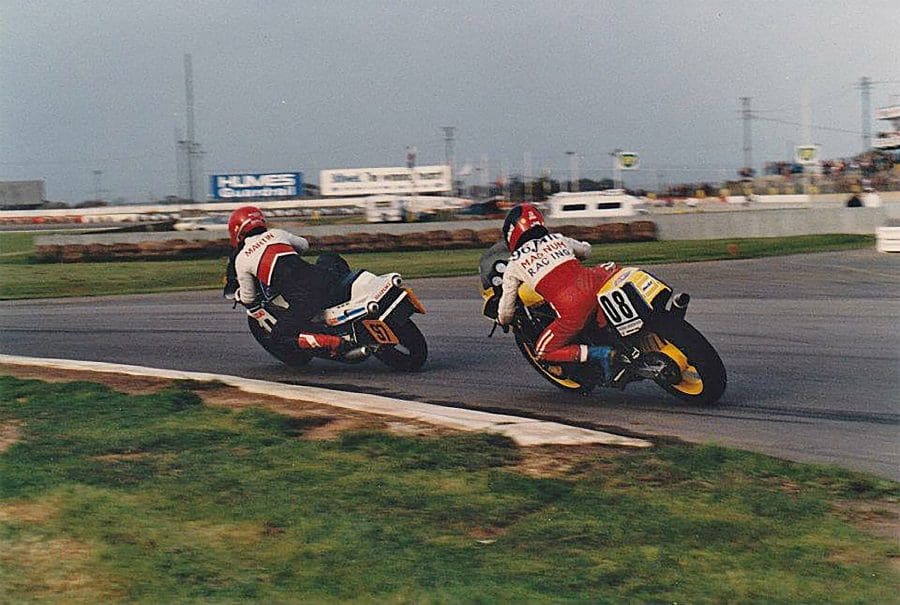
Fast forward 30 years
You may have seen the article we did on crazy front ends last year (AMCN Vol 67 No 04) where we compared a couple of unconventional Aussie-built front ends at Wakefield Park, NSW. Alan King, one of the bike’s owners, got talking to Editor Dobie and it turned out he had an RG500 which he still rode regularly. We negotiated a trackday on the bike to see if my old memories matched modern realities, and to see how the bike has stood the test of time.
Alan’s bike is a really nice, clean example of the RG; although touted as a racer on its release, Alan has been using his for touring. He finds it comfy, great for his wife to sit on the back of and easy to fit luggage to – which completely contradicts the manufacturer’s design brief. It’s never been on a track before, so a big thanks to Alan for putting his trust in AMCN.
The first thing you notice is there’s no electric start. You need to sit on the bike, open the fuel taps and play with the left handlebar-mounted choke while giving it a big kick to get it humming, but once those four cylinders chime in, there’s a magical symphony of noise. There’s no taking off straight away either – it needs to be warm and you must be careful not to load it up, so giving it a blip every 10 seconds or so clears its throat. The throttle is quite heavy – no fly-by-wire here – just the cables pulling up the four flat-slide carbies mounted in front of the rotary-disc inlet ports.
Clicking it in to gear for the first time 30 years on and releasing the clutch was a moment I won’t forget in a hurry. I’d often thought about how fierce my bike was, so I was expecting to be thrown backwards by a monstrous mono when I hit the band – but it never came. Well, not like on Josh Waters’ championship-winning GSX-R1000R which I had ridden only moments before.It felt great to be under way though. You feel wedged in the bike with quite a big fairing protecting you up front. The ride is very soft – even allowing for a bit of wear over time, it’s amazing how soft the big girl was. I came in and wound the preload up on the rear shock to nearly max, which improved the situation. On my next exit, my heart skipped a beat as I missed second gear and my thoughts went rushing back to my gear-covered foot, all those years ago. It’s good to know that it just wasn’t my bike with a hit-and-miss second gear. The power was certainly not what I remembered when accelerating through the gears, but we should remember this bike is unmolested and is probably still with its original rings.
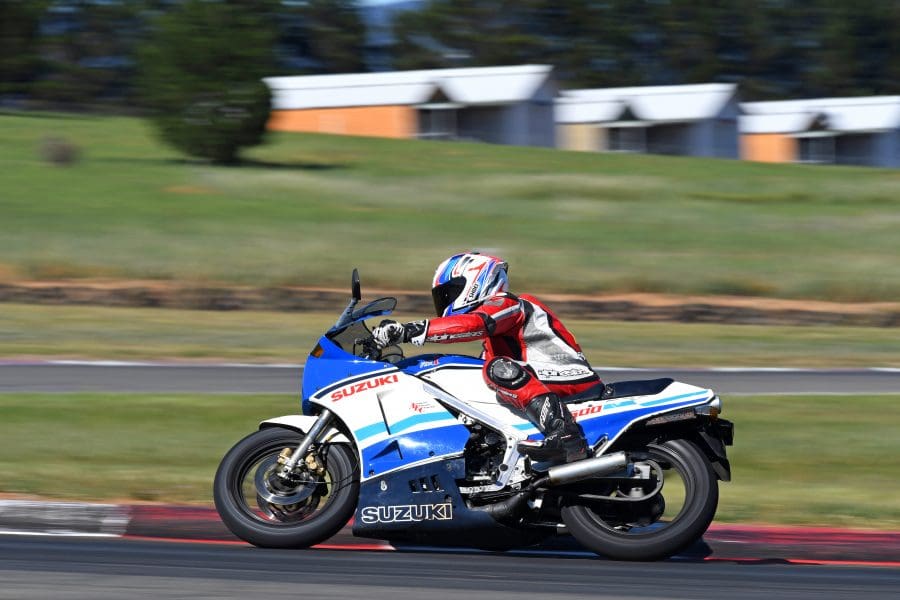
Where’s the wheelie?
It wasn’t the wheelie monster I remember, but the power it did have was tricky to control and use – more so than the over 149kW (200hp) of Josh’s GSX-R1000R. On the edge of the tyre it was very difficult to ride, I felt that it would be easy to highside – a lot more so than with a modern bike. As I leant over, the grip diminished and that opened my eyes about how much respect the old two-stroke 500cc racers deserve – no wonder they highsided a lot. It certainly felt light to manoeuvre, especially as you headed down the hill at Wakefield Park and changed direction for the off-camber left-hand turn. It was keeping its composure and line better, now that we had upped the spring on the rear but the tyres, though modern, still had nowhere near the grip of the modern sportsbikes. I found myself tipping into corners with not a lot of feel and just guessing what was happening on the ground.
The brakes had just been serviced and new pads were fitted, meaning they were in top-notch condition, but again, on the racetrack those 30 years of development were obvious. They lacked power and stopping force compared to a modern bike, putting a damper on the last thing which I hoped would be a match for the modern world.
I guess it looks negative for the RG; it doesn’t do anything particularly well anymore and you must remember to fill it up with two-stroke oil, too. The one thing it did do though, was it allowed me to ride the motorcycle, find the limit and think about what was happening next – it was exciting.
Nothing is automatic on any old motorcycle, and that includes the RG. All its imperfections in the modern world are what draws people like me to these old beasts – it’s the thrill of the game. There
is no way I would be anywhere near as fast on the RG as I would be on a GSX-R, on the road or the track, but I know which one is the most exhilarating to ride hard.
And although I didn’t set the lap record that day, I had more fun than anyone else out there.
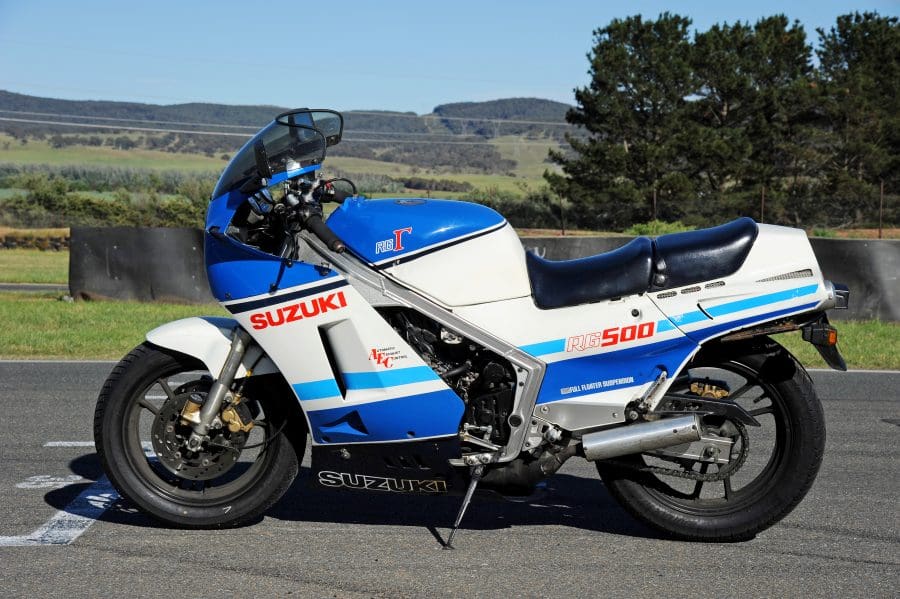
Words Steve Martin Photography Keith Muir
